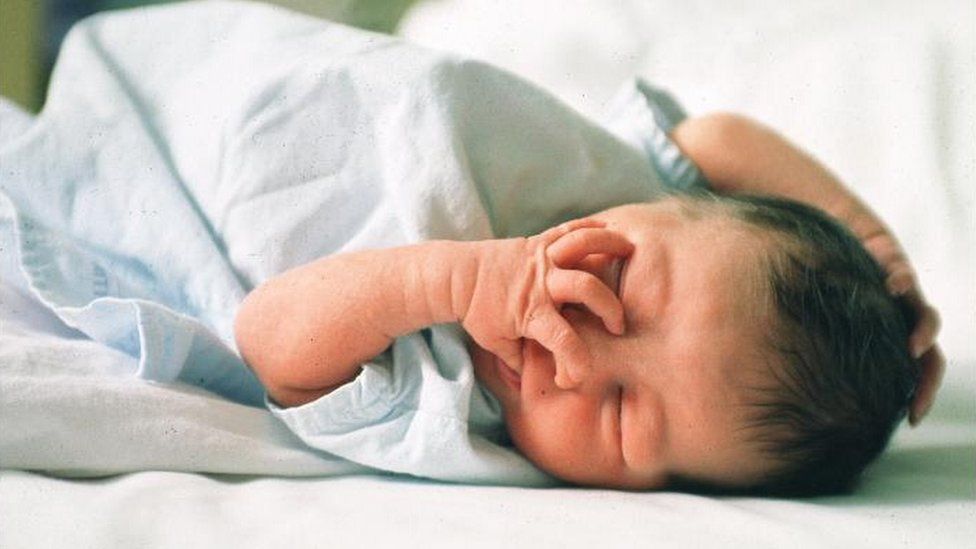Volunteers are cuddling vulnerable babies
- Published

Vulnerable babies born addicted to painkillers or heroin are being soothed through their first difficult weeks by volunteers whose sole task is simply to cuddle them.
Programmes in hospitals and care facilities across the US have been inundated by people keen to offer physical comfort to the infants as they go through the withdrawal process.
Numerous studies have shown the benefits of human physical contact, and medical staff have found that recruiting volunteers to hold and snuggle up to babies - perhaps singing or whispering to them - has a positive effect on the newborns.
Many babies spend weeks or months in hospital as they are gradually weaned off the drugs they have been exposed to in their mothers' wombs. Sometimes they are not with their parents, or their mothers are spending many hours each day attending drug rehabilitation programmes.
'Someone to hold their baby'
"These babies need to feel love, human touch and a soft voice to comfort them when they're in pain," says Maryann Malloy, a nurse manager for the neonatal intensive care unit at Einstein Medical Center in Philadelphia.
"It makes the parents feel better knowing that even when they cannot be here there is someone to rock and hold their baby."
"It is a helpless feeling when these babies become inconsolable.
"Our cuddlers help so the babies do not reach that point. They pick them up before the first whimper."
The babies are suffering from Neonatal Abstinence Syndrome (NAS) as a result of their mothers using prescription painkillers and drugs like heroin or methadone.
Their symptoms will vary depending on what drugs the mother was taking but can include excessive crying, fever, irritability, rapid breathing, seizures, sleep problems, trembling, vomiting and sweating.
Having volunteers available to cuddle babies also has reduces both the amount of medication babies need and their length of stay in baby units, doctors have noted.
Recruiting cuddlers
Some babies have also shown other improvements, such as gaining weight more quickly.
Recruiting cuddlers to help look after vulnerable infants is now a widespread practice in the US. It has been used by some institutions dating back to the 1980s for premature babies and those born to crack-addicted mothers.
However, the problem of babies born with NAS in the US appears to be growing.
A 2013 report showed a greater number of women were using prescribed painkillers during pregnancy and also a general increase in prescription painkiller abuse.
According to the National Institute on Drug Abuse one baby every 25 minutes is born with NAS.
The Pennsylvania Health Care Cost Containment Council reported that in its region alone the rate of newborn hospital stays for substance-abuse problems soared 250 percent from 2000 to 2015, when almost 20 out of every 1,000 newborns faced withdrawal issues.
Similar volunteer programmes are run across the US. The Thomas Jefferson University Hospital, in Philadelphia, has a four-hour training course for its cuddlers. Once vetted and trained the volunteers put in three-hour supervised shifts.
The Boston Medical Center also has a program called CALM - Cuddling Assists in Lowering Maternal and Infant Stress.
So many people have signed up to the Jefferson cuddling programme that their books are closed now to new volunteers until the middle of the year.
Those still keen to help are advised to look up local women and children's shelters, which often provide services for mothers battling addiction.
By Annie Flury, UGC and Social News Team
- Published25 November 2016
- Published5 July 2016